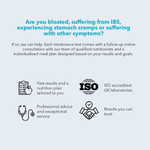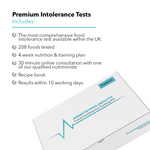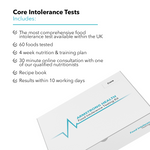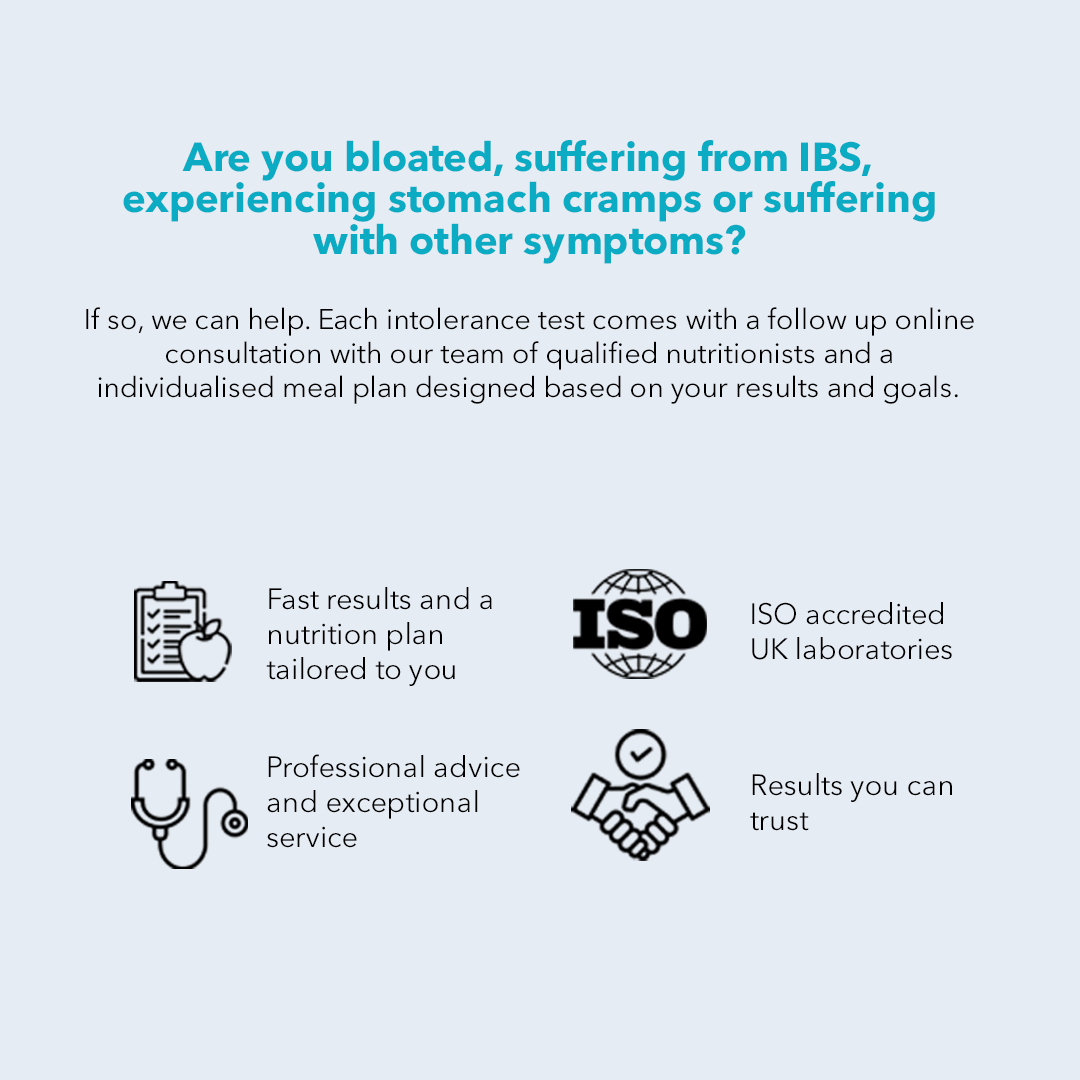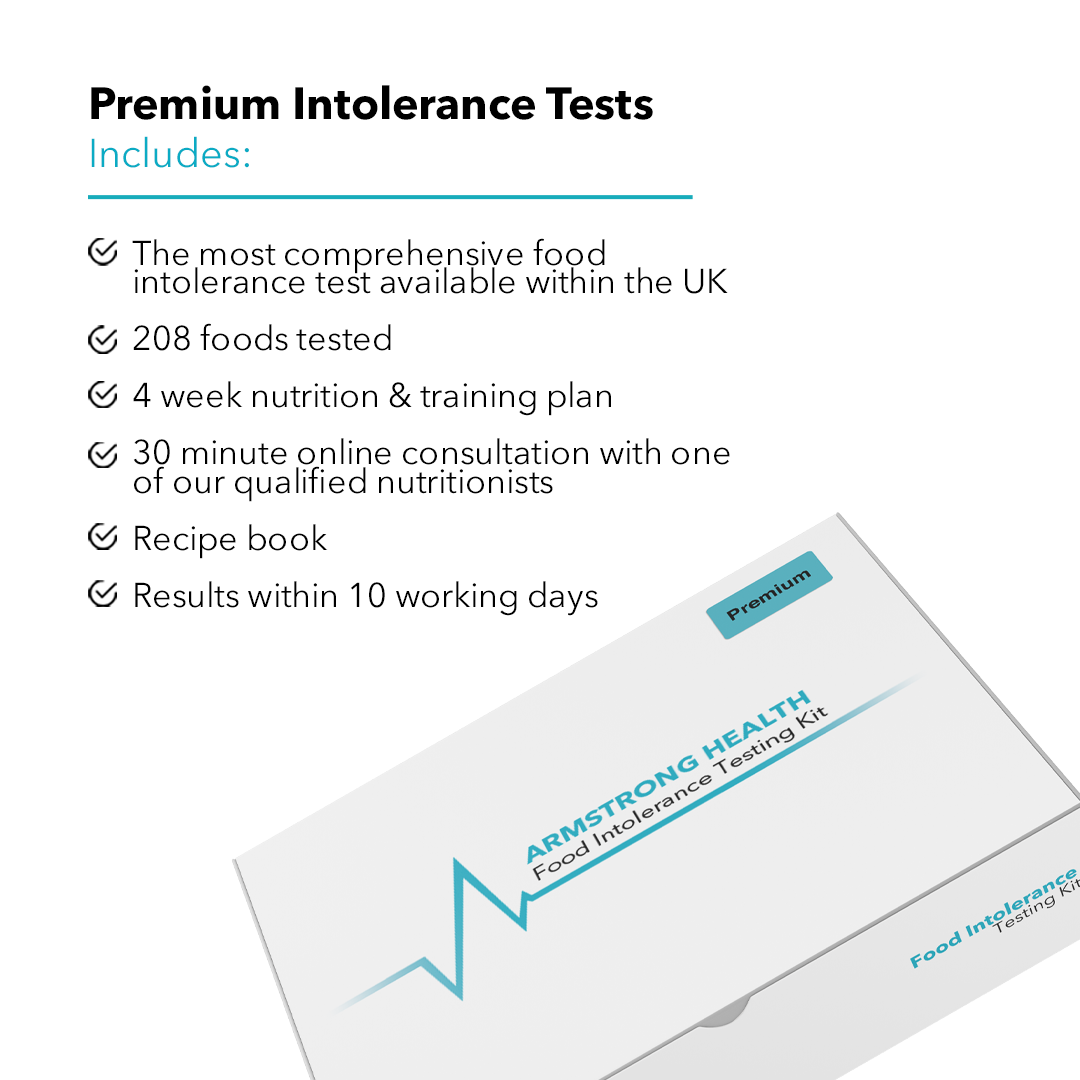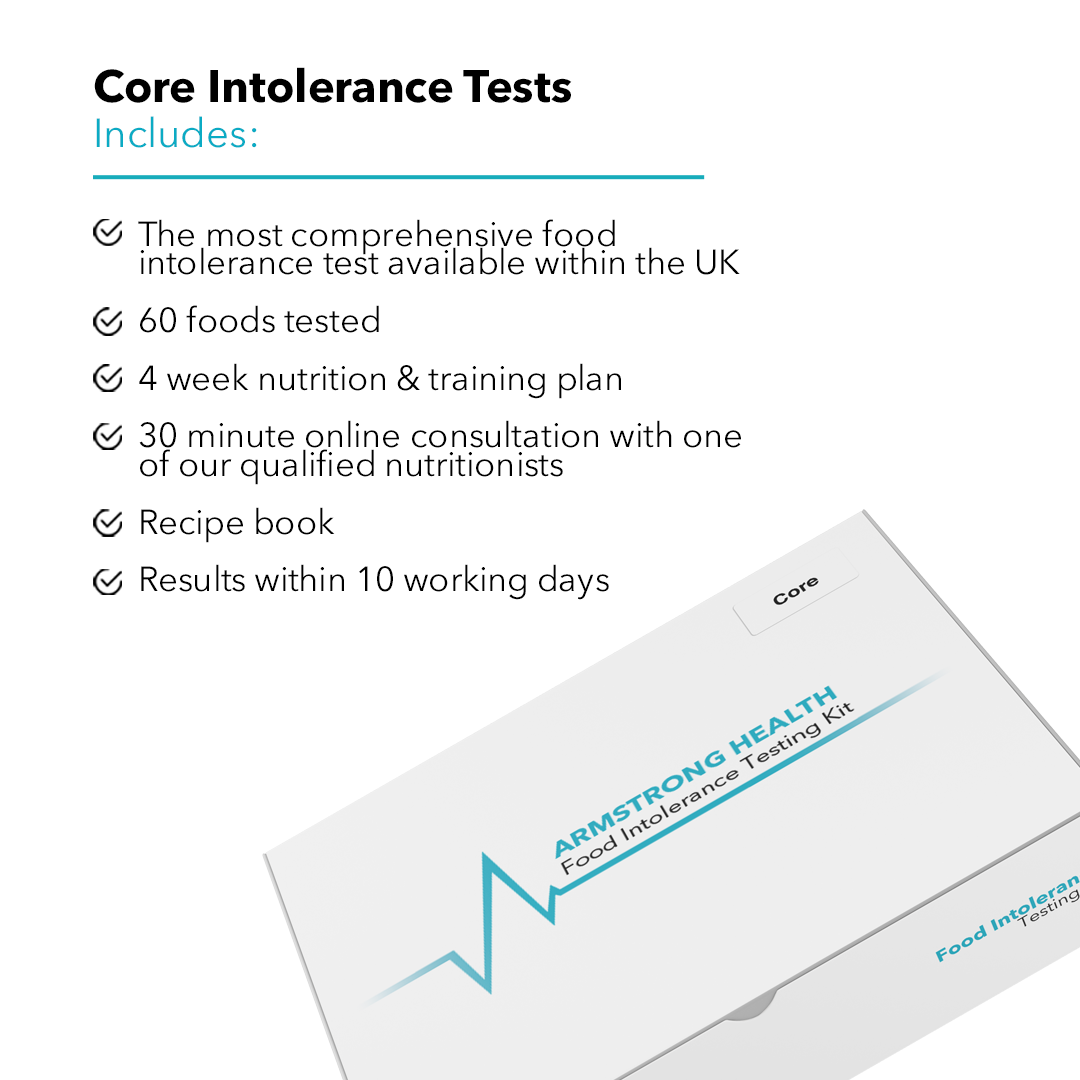Weight management is a complex and multifaceted issue influenced by numerous factors, including genetics, lifestyle, and diet. In recent years, personalised nutrition has emerged as a powerful approach to successful weight management that tailors dietary strategies to an individual's specific needs, preferences, and health goals. One crucial aspect of personalised nutrition is understanding the potential role of food intolerances in weight gain, maintenance, and loss. Armstrong Health offers comprehensive food intolerance and sensitivity tests, providing valuable insights into the unique dietary triggers that may impact an individual's weight management success.
Food intolerances can potentially contribute to a variety of undesirable effects on weight management, such as inflammation, hormonal imbalances, and digestive distress, all of which can impede your ability to lose weight or maintain a healthy weight effectively. By conducting comprehensive testing and identifying specific food sensitivities, individuals can tailor their nutritional choices to address these issues, promoting long-term weight management success.
Armstrong Health provides the most in-depth food intolerance and sensitivity tests available within the UK, allowing individuals to uncover their dietary triggers and adapt their nutritional strategies accordingly. This knowledge empowers clients to create personalised weight management plans that specifically address their unique needs and promote optimal weight loss and maintenance.
Food Intolerance Testing: A Key Component in Personalised Weight Management Strategies
Understanding the Link Between Food Intolerances and Weight Management
Food intolerances can impact weight management through various mechanisms, including:
- Inflammation: Food sensitivities can trigger inflammation in the body, which may negatively affect weight management by promoting fluid retention, increasing appetite, and contributing to hormone imbalances
- Digestive distress: Common symptoms of food intolerances, such as bloating, gas, and gastrointestinal issues, can hinder weight loss by causing discomfort and interfering with nutrient absorption
- Hormonal imbalances: Food intolerances may contribute to hormonal imbalances, such as insulin resistance, which can influence appetite regulation, metabolism, and weight gain
- Appetite regulation: Food sensitivities can disrupt appetite-regulating hormones, leading to increased hunger and difficulty managing portion sizes
By understanding the potential connection between food intolerances and weight management struggles, individuals can utilise comprehensive testing to address these underlying issues and develop tailored nutritional strategies to support their weight loss goals.
Personalised Nutrition Strategies for Effective Weight Management
Utilising the results from comprehensive food intolerance testing, individuals can develop personalised nutrition plans tailored to support their weight management goals. Consider implementing the following dietary recommendations into your personalised nutrition plan:
- Eliminate or reduce trigger foods: Based on your test results, eliminate or limit the consumption of identified food sensitivities to minimise inflammation, digestive issues, and potential adverse effects on weight management
- Balance macronutrient intake: Ensure an appropriate balance of carbohydrates, proteins, and fats to support balanced blood sugar levels, appetite regulation, and nutrient absorption
- Prioritise nutrient-dense, whole foods: Incorporate whole, unprocessed, and nutrient-rich foods, such as lean proteins, whole grains, fruits, vegetables, nuts, and seeds, to provide essential vitamins, minerals, and fibre necessary for optimal weight management
- Practice mindful eating: Develop awareness of hunger and fullness cues, slow down during meals, and practise portion control to support successful weight management efforts
By adopting a personalised nutrition approach based on unique food sensitivities, individuals can effectively support their weight management goals and enhance their overall well-being.
Additional Holistic Strategies for Supporting Effective Weight Management
Beyond food intolerance testing and personalised nutrition, embracing a holistic lifestyle can further support successful weight management:
- Regular physical activity: Engage in consistent exercise, incorporating both cardiovascular and strength training activities, to support weight loss, increase muscle mass, and improve overall health
- Maintain healthy sleep habits: Prioritise consistent, quality sleep, aiming for 7-9 hours each night, to support hormonal balance, appetite regulation, and overall well-being
- Manage stress: Implement stress-reducing techniques, such as mindfulness practices, deep breathing exercises, and relaxation strategies, to help manage stress levels, which can influence appetite, cravings, and weight
- Seek professional guidance: Consult a nutritionist, personal trainer, or other qualified professional for personalised guidance in tailoring your weight management strategies
By integrating food intolerance testing and personalised nutrition with a comprehensive approach to weight management, individuals can achieve lasting success in their weight loss and maintenance efforts.
Embrace the Power of Food Intolerance Testing and Personalised Nutrition for Weight Management Success
Understanding the potential impact of food intolerances on weight management can empower individuals to address the underlying issues that may be hindering their success, enabling them to develop tailored nutritional strategies aligned with their individual needs. Comprehensive food intolerance testing from Armstrong Health provides the tools and insights needed to identify dietary triggers that may impact weight management, equipping individuals with the knowledge required to create personalised plans that support their weight loss and maintenance goals.
Unlock the potential of personalised weight management strategies by discovering the role of food intolerance testing in achieving your goals. Experience the benefits of addressing food sensitivities, adapting your nutrition choices, and embracing an overall healthy lifestyle to successfully manage your weight, enhance your well-being, and cultivate long-term health and vitality.















